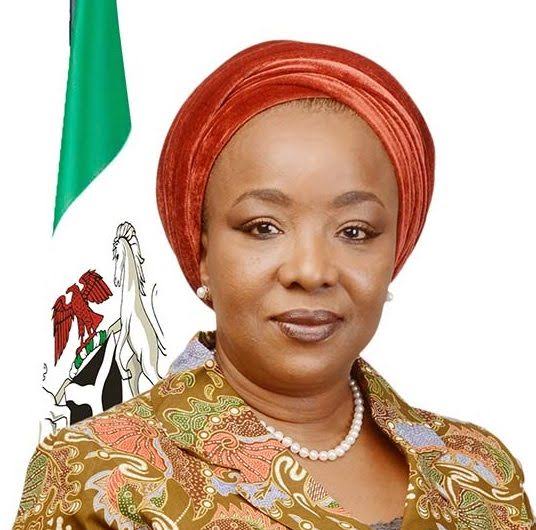Chuks Oyema-Aziken
Nigeria’s participation at just concluded COP26 came into focus as stakeholders in the Environmental sector came together for a post Conference consultation and dialogue.
Minister of State for Environment Sharon Ikeazor declared open the COP 26 National Stakeholder Consultative Meeting held in Abuja.
The workshop seek to discuss on the pathways for achieving the national commitments made at COP 26 in Glasgow Scotland..
According to Ikeazor, “We are gathered here to review the outcomes of the recently concluded COP26 and deliberate on the next steps which would include a roadmap for the domestication of the outcomes of COP26 and also a national plan for the actualisation of Nigeria’s inputs for COP27. The climate change goals highlighted by Mr President included Global Greenhouse Gas, GHG emission reduction goal, as well as the financial pledge by developed countries to support developing nations, alongside Adaptation, Loss and Damage, Mitigation, capacity building and technology transfer,’’ the Minister explained.
She said the workshop will also discuss options for efficient national reporting of Nigeria’s climate action in ways that will open opportunities for greater accountability and the mobilization of low carbon investments in the country.
‘’A consensus was reached on major agenda items towards addressing Climate Change by UNFCCC Parties, which allowed the adoption of the Glasgow Climate Pact, a package which strengthens ambition in the three pillars of collective climate change action, Adaptation, Finance and Mitigation.’’ In the same vein, the adaptation component in Nigeria’s revised Nationally determined contributions NDC, is premised on the need to avert potential risks, including significant losses that could come from sectors like energy and agriculture in the absence of planned adaptation,’’ Ikeazor stated.
Ikeazor stressed that the Ministry will continue to implement existing programmes and projects in addressing climate change and future programmes and projects such as the development of Nigeria’s NDC, Sectoral Action Plan, Implementation of the Revised NDC, Issuance of a 3rd Nigeria Sovereign Green Bond, Development of a Nigeria National Readiness Plan for assessing the Green Climate Fund GCF, Implementation of the National Action Plan on Gender and Climate Change, Preparation of Nigeria’s First Technology Needs Assessment and Development of the National Adaptation Plan.
While commending the development partners for acting as catalysts to strengthen 5 engagement and capacity to support transformative climate action through mobilization of resources, Ikeazor said the Ministry will continue to broaden the scope of the NDC and ensure that relevant stakeholders are being carried along in all issues of NDC implementation.
In an address on behalf of the
British High Commission, Abuja, Adesuwa Obasuyi, Climate Change Policy Manager, said the UK Presidency has given significantly more focus to championing real world sectoral action than ever before.
“For the first time, COP agreed a position on phasing down unabated coal power. Some other achievements to note are that 153 countries put forward new 2030 NDCs. 137 countries committed to halt forest loss and degradation by 2030. 80 countries are now covered by either Adaptation Communications or National Adaptation Plans to increase preparedness to climate risks.
“To drive adaptation action, the Glasgow – Sharm el-Sheikh Work Programme on the Global Goal on Adaptation was agreed. Record amounts of adaptation finance have been pledged, including doubling 2019 levels of adaptation finance by 2025 taking the annual figure to around $40 billion which brings it closer to the 50% of international climate finance that has been proposed goes into adaptation.
“This is the first time an adaptation specific financing goal has ever been agreed globally. A new Glasgow Dialogue on Loss and Damage funding arrangements was created, and the Santiago Network on Loss and Damage was brought to life.
“Worth mentioning is that progress has been made towards delivering the $100 billion climate finance goal and it will be reached by 2023 at the latest.
“The British High Commission commends Nigeria for the various approaches it has taken to address climate change, with a major focus on ensuring its plans are consistent with national development priorities and using the energy sector as a key driver for economic growth. Progress has been made on climate change governance as the government recognizes climate change as a threat to its economic prosperity and future development.
“The UK is working with Nigeria on the implementation of its climate plans including the initiatives signed up to in the lead-up to and at COP26.
“This includes supporting Nigeria to: improve access to reliable power; manage a transition from dependence on fossil fuels to more financially viable and greener energy supply; developing infrastructure which is more climate smart, higher quality, better planned and value for money; boosting the uptake of climate-smart agriculture and conserving nature.
“Apart from ongoing support for the NDC Facilitator, our programmes PACT/UKNIAF (Partnering for Accelerated Climate Transitions and Nigeria Infrastructure Advisory Facility) which support climate change mitigation and sustainable infrastructure, also have £1.5m of funding in place for a suite of advisers within the Ministries of Environment and Finance to boost the inflow of green finance into Nigeria, help green Nigeria’s infrastructure, and create a climate finance and project database.
“We are supporting climate change adaptation. More than 600,000 people are now more resilient to the impacts of climate change in Northern Nigeria through our Propcom Mai-karfi programme. We also support increased financial inclusion so that people can save against shocks and have enabled more than 200,000 excluded people to have access to finance through various programmes.
“And, UK support has helped businesses to create partnerships with the Nigerian public sector and shift their supply chains for products such as palm oil and coca to use land more sustainably, reduce deforestation, and create new opportunities for investment.
“This is not all but let me conclude by saying, the UK will continue efforts to support the Nigerian government and stakeholders to enhance resilience to climate impacts and to transition to a greener economy and low-carbon future that positively impacts lives and livelihoods.”
The workshop is to create an opportunity for joint reflection of key stakeholders and experts on the outcome of 2026 and the implications for Nigeria, and also discuss actions that can be taken to ensure Nigeria has a very successful COP 27 in Egypt.
It is expected that the outcome of the workshop will help a deeper understanding of the outcome of COP26 and also a road map for the domestication of the outcome of COP 26, plan of action for Nigeria’ preparation for COP27 in Egypt in 2022.



